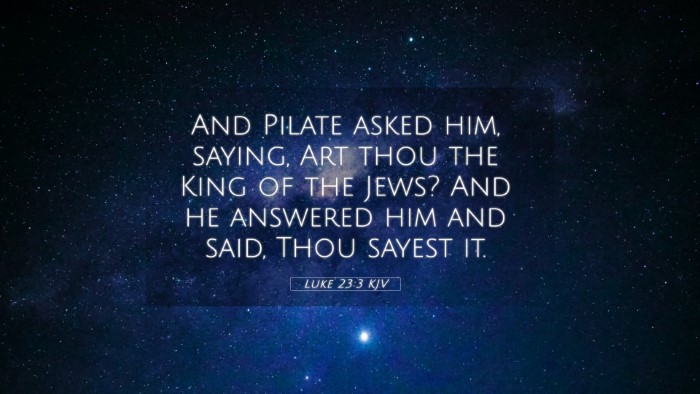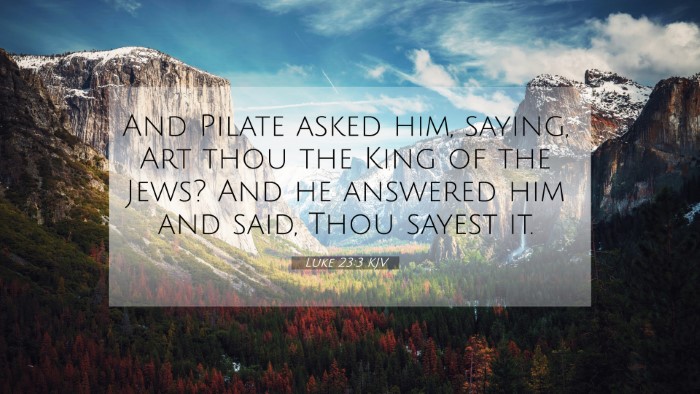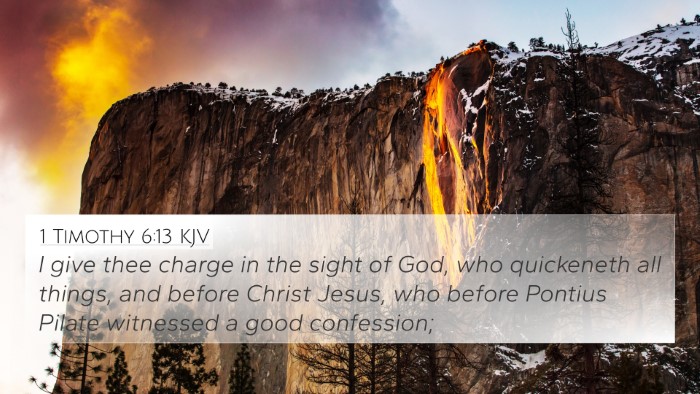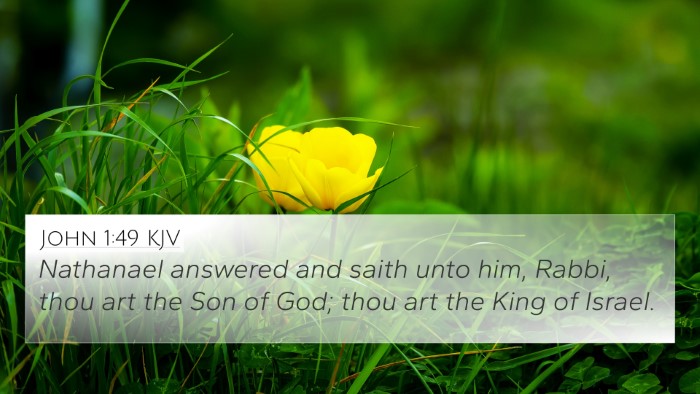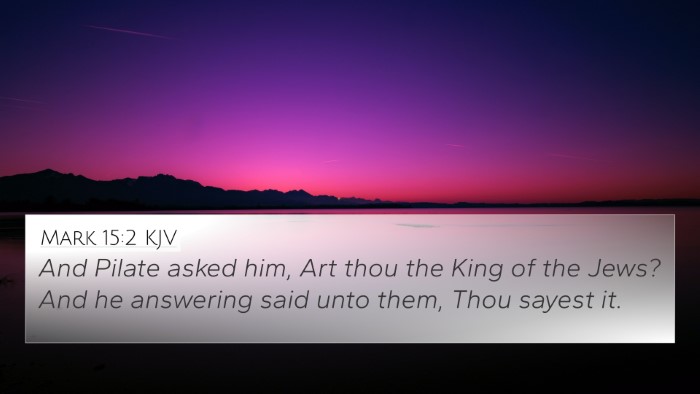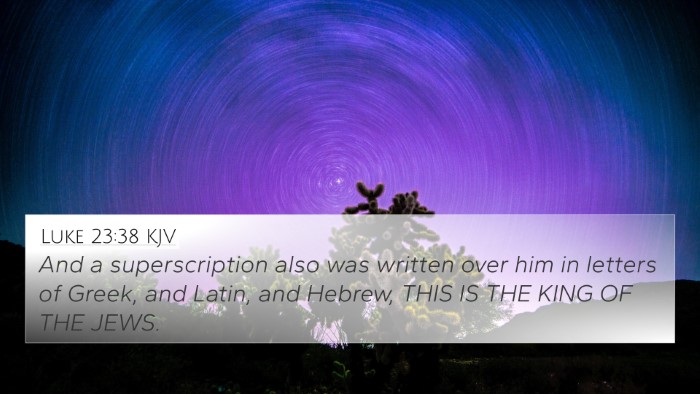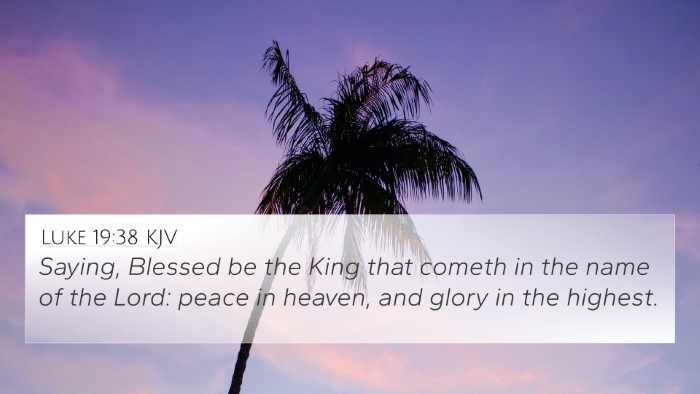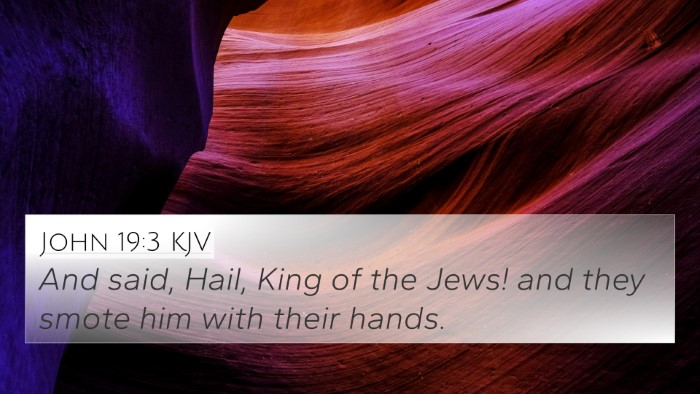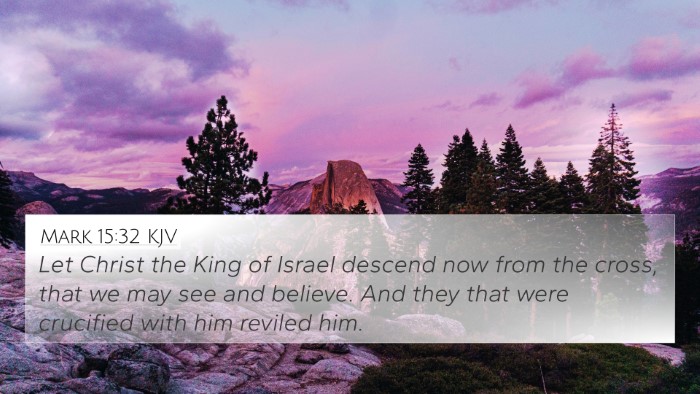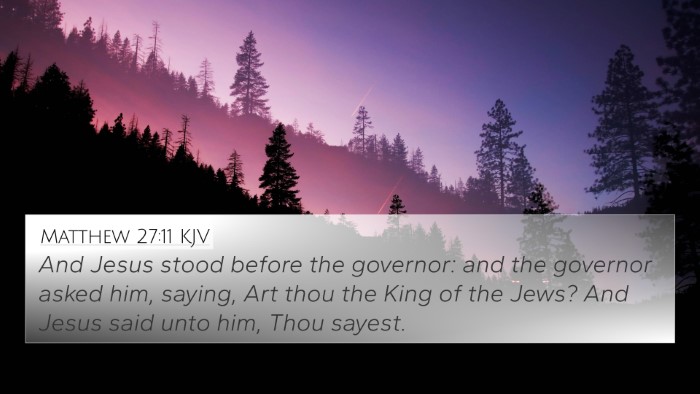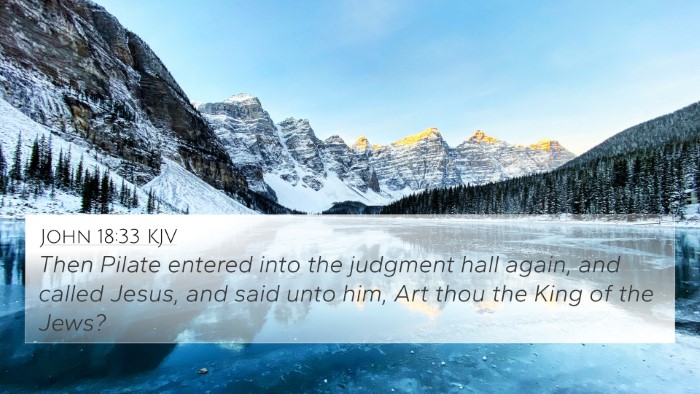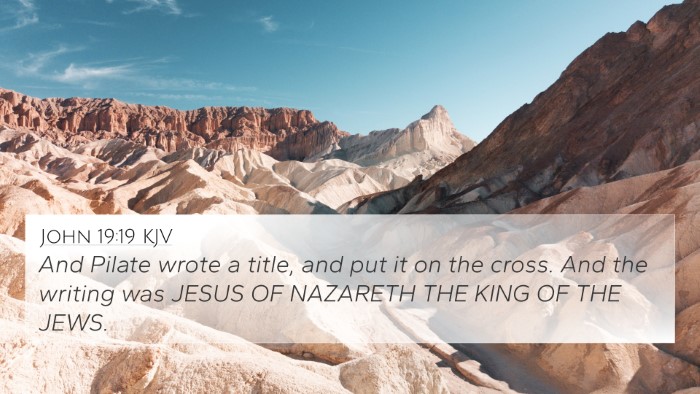Understanding Luke 23:3
Verse: Luke 23:3 - "And Pilate asked Him, saying, Art thou the King of the Jews? And He answered him and said, Thou sayest it."
Summary of Meaning
In this significant moment during Jesus' trial before Pontius Pilate, we see a pivotal interaction between civil authority and the claims of Christ. Pilate's inquiry regarding Jesus' kingship signifies a political dimension to the accusations brought against Him.
Commentary Insights
-
Matthew Henry:
Henry emphasizes that this moment reflects the higher spiritual reality that transcends earthly kingdoms. Jesus acknowledges the title 'King of the Jews,' not as a political claim but as a recognition of His true identity and mission—a king in the spiritual and eternal sense.
-
Albert Barnes:
Barnes notes that Jesus' response "Thou sayest it" is an affirmation of Pilate's question and opens a conversation about the nature of His kingship. It further highlights the misunderstanding of Jesus' role in the eyes of worldly authorities.
-
Adam Clarke:
Clarke suggests that Pilate's interrogation underscores the conflict between secular authority and divine truth. Jesus's calm and concise reply embodies His confidence in His mission, providing an open invitation for those seeking truth to understand who He really is.
Cross-Referencing Biblical Texts
Luke 23:3 relates closely to various other verses that enrich the understanding of this passage. Key cross-references include:
- John 18:36: "Jesus answered, My kingdom is not of this world..."
- Matthew 27:11: "And Jesus stood before the governor: and the governor asked him, saying, Art thou the King of the Jews?"
- Mark 15:2: "And Pilate asked him, Art thou the King of the Jews? And he, answering, said unto him, Thou sayest it."
- Isaiah 9:6: "For unto us a child is born, unto us a son is given: and the government shall be upon his shoulder..."
- Philippians 2:10: "That at the name of Jesus every knee should bow, of things in heaven, and things in earth, and things under the earth;"
- Revelation 19:16: "And he hath on his vesture and on his thigh a name written, KING OF KINGS, AND LORD OF LORDS."
- John 10:30: "I and my Father are one."
Thematic Bible Verse Connections
This verse serves as a focal point for broader themes within scripture:
- The Nature of His Kingship: Explored through the contrasts between earthly and heavenly authority.
- The Fulfillment of Prophecy: Jesus as the prophesied messianic King from the lineage of David.
- The Rejection of Jesus: Reflecting the disbelief of His rightful authority.
- The Identity of Christ: How scripture reveals Jesus' sovereignty and divine nature.
How to Use Bible Cross-References
Understanding the connections between verses like Luke 23:3 and others is vital for deeper Biblical study. Here are some methods and tools:
- Bible Concordance: Use a concordance to find where key terms appear across scriptures.
- Bible Reference Resources: Utilize study Bibles that provide a cross-reference guide.
- Cross-Reference Bible Study: Engage in studies that focus on linking scripture themes, such as the nature of kingship.
- Cross-Referencing Methods: Consider thematic studies to see how different scriptures interrelate.
Conclusion
The interaction between Pilate and Jesus in Luke 23:3 is a profound moment of revelation about the nature of Christ's kingship. By examining the verse alongside various commentaries and cross-referencing it with other scriptures, we gain a more nuanced understanding of Jesus' identity and mission. Delving into these connections not only enriches personal study but deepens the appreciation for the intricate tapestry of biblical truth throughout the scriptures.

